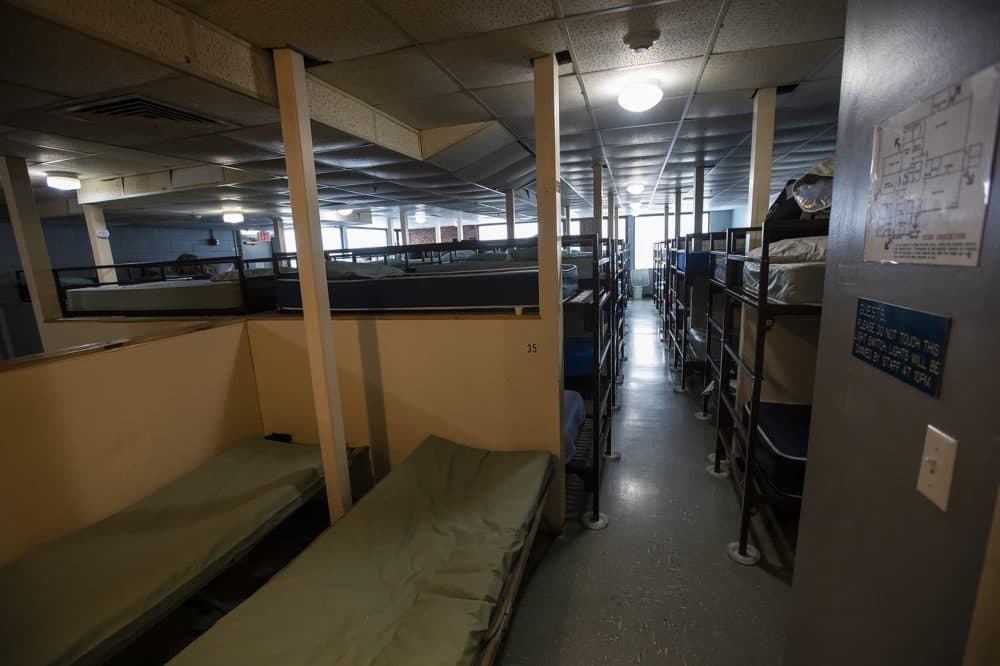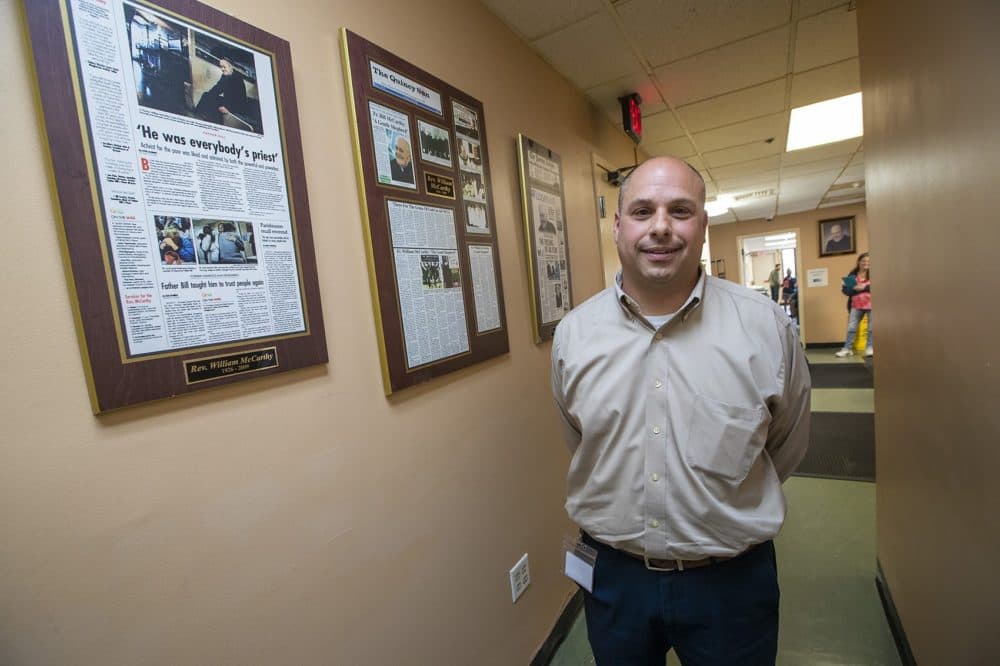Advertisement
For One Homelessness Nonprofit, It's Been A Coronavirus Tale Of Two Shelters

For people who live in emergency homeless shelters, keeping a distance from others is nearly impossible.
In Massachusetts, shelters are typically at — or over — capacity.
Those who run the shelters have been scrambling for ways to spread out their populations to prevent the coronavirus from running rampant.
John Yazwinski is president and CEO of Father Bill's & MainSpring, which operates homeless shelters in Quincy and Brockton.
Yazwinski says the way Father Bill's has been able to de-populate the shelter appears to be causing or contributing to lower rates of infection. The nonprofit divided its Quincy population between its main facility, the South Shore YMCA field house, and a local hotel that is currently closed to other customers.
But Yazwinski told WBUR's All Things Considered host Lisa Mullins he doesn't know how he's going to maintain that strategy, and he wants to see a statewide shelter plan to keep the coronavirus under control.

Interview Highlights
Overall, we've tested 280 people to date between both [shelter] communities. The Brockton [shelter] infection rate now stands at 32%. In [the Quincy shelter population, it's] now at 4%. And 31 people have fully recovered, which is really good. And we've had one person [in Brockton] pass away who had significant underlying health concerns.
Lisa Mullins: So what accounts for such a remarkable difference?
One is we were able to de-populate a lot sooner out of Quincy than we were in Brockton. We were able to acquire the other [temporary shelter] sites a lot sooner. And then, also, having the sites significantly away from the shelter has allowed us to quarantine people and not have them mingling.
So no matter what ... people that are struggling with homelessness will leave during the day sometimes and take a walk, or if they're struggling with substance abuse, they'll go out and want to use [drugs or alcohol]. And then we'll need to take them back in. But I think we've been able to keep the social distancing, where in Brockton, we are kind of all in that same area [with tents provided by Massachusetts Emergency Management Agency set up outside the main shelter], and a lot of our homeless guests are kind of still connecting with each other around our area in the city.
So what can be done about that then? I mean, now that you know what works and what works less well, what can you do now?
What we do see is we have a little bit of evidence what is working. But, you know, what happens when these sites aren't available? And that could be in a matter of weeks or a month or two.
You mean when the hotel wants to go back to being a hotel, and the Y wants to be a Y again.
That's right. And we understand that they want to go back and do their business. But the crisis for the homeless population is still going to be there. And so I think what we're trying to communicate with the state and with the federal government and our local municipalities is ... until there is a widely available vaccine, I think we really need to put up more de-population sites or keep the ones we have and then keep the testing going, or we're going to continue to have major outbreaks.
And we're very concerned about all these increased costs that come with, you know, cleaning our facilities, staffing these extra facilities, the supplies that are needed, the masks, the gloves ... Right now we are already taking on close to $300,000 of new incurred costs related to [COVID-19]. So we feel like for the next couple of months, hopefully we should be able to get some of the federal stimulus money to help. But long term, if we're talking the next three to six months, or the next year, we're very concerned about our ability to keep these sites running.
Advertisement
To keep the sites running, and I would assume to keep people fed ... how hard is that right now?
It's really hard because about 90% of our meals were donated in the past by volunteer groups. And now that we don't have the volunteer groups coming in, we've been receiving a lot of donations to help us with these costs, but at the same time, we've seen our food budget go up.
If you could change one thing right now ... If you could recommend that one immediate problem be resolved, what would it be, and how would you resolve it?
I think that we have to, at the state level, decide that we're never going to go back to overcrowded congregate emergency shelters — that it doesn't work in this public health crisis, and it doesn't work, big picture, for the greater good of ending homelessness. So let's invest in capital resources right now to bring on more facilities that can solve the immediate crisis, but then can be converted to permanent supportive housing in the long run.
WBUR's All Things Considered asked several state departments if they're developing plans to have extra homeless shelter facilities statewide to help manage the virus for months ahead, but did not receive any responses.
This segment aired on April 23, 2020.

